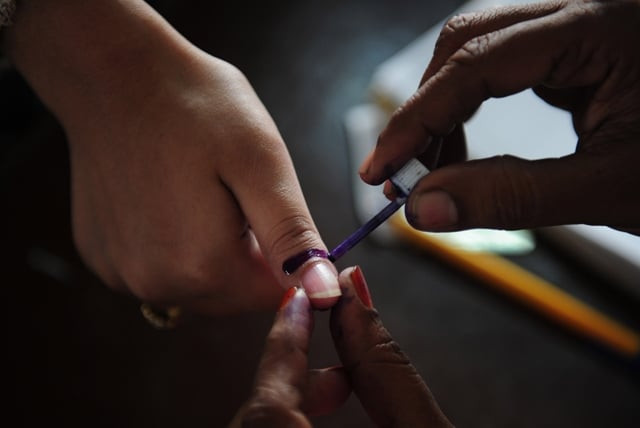‘United’ we stand: Sindh election commission expects 50% less work after LG law amendment
Number of required stamp pads will reduce to 0.6 million after the change.

Number of required stamp pads will reduce to 0.6 million after the change. PHOTO: AFP/FILE
Officials at the provincial election commission believe the Sindh government’s amendment to the local government law that allows candidates to contest elections under a common symbol will reduce the commission’s burden by more than 50 per cent.
The opposition parties had earlier rejected the amendment. “Earlier, we had to publish 111 million ballot papers but now will need only 30 million because no candidate is allowed to contest separately,” said Sindh election commissioner SM Tariq Qadri. “A panel will represent a group of like-minded people and one ballot paper will be used for nine candidates in a panel.”
Talking to The Express Tribune, he said they had earlier sent a requisition seeking 1.1 million stamp pads and magnetic ink but after the amendment through the ordinance promulgated by the governor, the number of required stamp pads will be around 0.6 million.
“Not only resources will be saved, but we will hire 50 per cent less employees for the election duties,” he said, adding that after the new law direct elections will be only held for councillors.
The basic unit of the local government election is union council but after the new local government law, its name has been changed to union committees in the urban areas. It means that UC are abbreviated as union councils in rural Sindh but, in Karachi, it means the union committees.
According to Qadri, the chairpersons and vice-chairpersons of the UCs will be indirectly elected. “The elections of chairpersons and vice-chairpersons of the union councils or union committees will be held in the second phase. The UC chairpersons will be members of the Karachi Metropolitan Corporation and vice-chairpersons will represent their area in the district municipal corporations (DMC).”

Regarding composition of the union councils, he said that nine members - six general members, one woman, one labourer or peasant and one non-Muslim - will be members of the union committee in the urban areas. Meanwhile, the union councils in rural areas will comprise of 10 members as one extra member is to be elected directly for the district council.
He was of the view that after the UC elections, the town committees, district councils, municipal corporations and Karachi Metropolitan City (KMC) will be formed where 22 per cent quota for women on reserved seats and five per cent each for non- Muslims and peasants will be kept before the election of mayor and chairpersons of the KMC, DMCs and district councils.
“The Sindh government has also assured to hold the elections on January 18. It is most likely that the election commission will issue the new schedule on December 6. After that, we will start the process of nomination for election forms,” he said.
On the other hand, Sindh minister for parliamentary affairs Dr Sikandar Mandhro said the provincial government was ready to hold the elections on January 18. When asked about information minister Sharjeel Memon statement regarding the Sindh government’s proposed date in March, he said, “The chief minister is the executive authority of the province. He has assured the election commission will meet the deadline of January 18.”
Published in The Express Tribune, December 4th, 2013.


















COMMENTS
Comments are moderated and generally will be posted if they are on-topic and not abusive.
For more information, please see our Comments FAQ